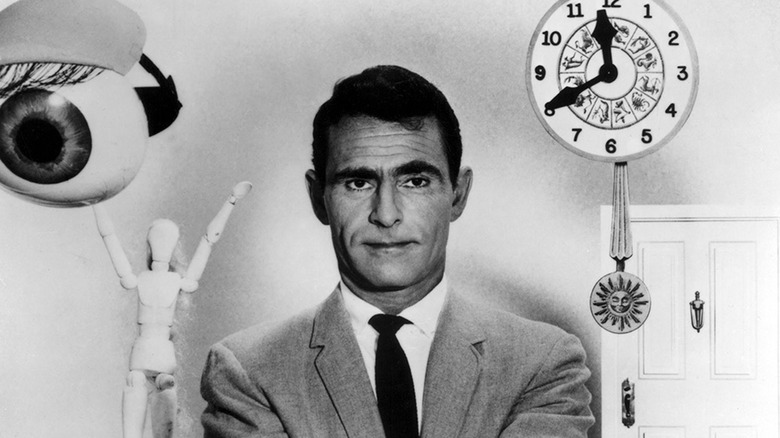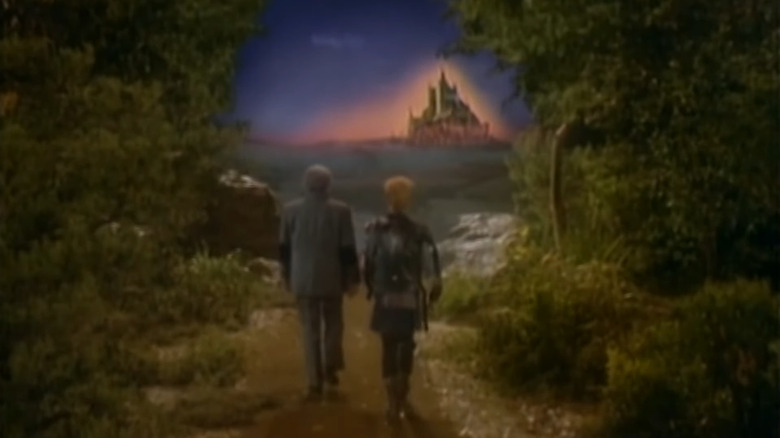George R.R. Martin's Career May Have Never Happened Without The Twilight Zone
Being a writer means you are always on the hunt for the next opportunity. Whether you are a novelist, a screenwriter, a poet, a journalist, or a critic, you constantly have your eyes and ears open for your next chance to write something. Especially if the pay is good, which is a true rarity in the business. You never know when a pitch will hit with someone or whether there's someone out there is reading your work, likes it, and offers you the chance to write something. Take this very job I'm doing now. I applied for the position, didn't hear anything for three months, and had given up hope. Now, I've been writing for /Film for over a year and a half. The life of a writer is chaotic.
This is even true of some of the most successful writers working today. Take George R.R. Martin, the author behind the fantasy book series "A Song of Ice and Fire," which served as the basis for "Game of Thrones." We know him to be one of the most famous authors on the planet right now, but his career as a writer took a lot of twists and turns before he created Westeros. Martin spent the first decade or so of his career publishing a plethora of science-fiction and fantasy short stories and novels. "A Game of Thrones" wouldn't be released until 1996, and Martin was having things published since the early 1970s, which is quite a bit of time cranking out material.
Along the way, Martin fell into something he never thought would happen in his career. He started working in television. Most notably, he found a good deal of work on the Ron Perlman-starring "Beauty and the Beast" series, but it was a classic series' revival that changed his fortunes.
Wanting the best for young writers
As we all know, the Writers Guild of America has been on strike for four months with seemingly no end in sight due to the AMPTP's greed. George R.R. Martin is in firm support of the union's efforts, and over on his blog, he detailed how he found himself breaking into the television game by unsuspectingly writing for the mid-1980s revival of "The Twilight Zone":
"I never dreamt of writing for [television] until 1985, when CBS decided to launch a new version of 'The Twilight Zone,' and executive producer Phil DeGuere invited me to write an episode for them [...] Phil and his team liked what I did. So much so that within days of delivery, I got an offer to come on staff. Before I quite knew what had happened, I was on my way to LA with a six-week deal as a Staff Writer, at the Guild minimum salary."
The revival of "The Twilight Zone" wasn't anyone's favorite show, but an experience like that for someone brand new to the business is invaluable. After that, Martin became a seasoned TV writer, and he admits the "Game of Thrones" TV show wouldn't have been possible without that early experience:
"I was the most junior of junior writers [...] [I]n TV I was so green that I would have been invisible against a green screen. And that, in my opinion, is the most important of the things that the Guild is fighting for. The right to have that kind of career path. To enable new writers, young writers, and yes, prose writers, to climb the same ladder."
You can't find the next George R.R. Martin without creating real opportunities, and today's television and streaming businesses don't and won't until the AMPTP accepts the WGA's terms.

